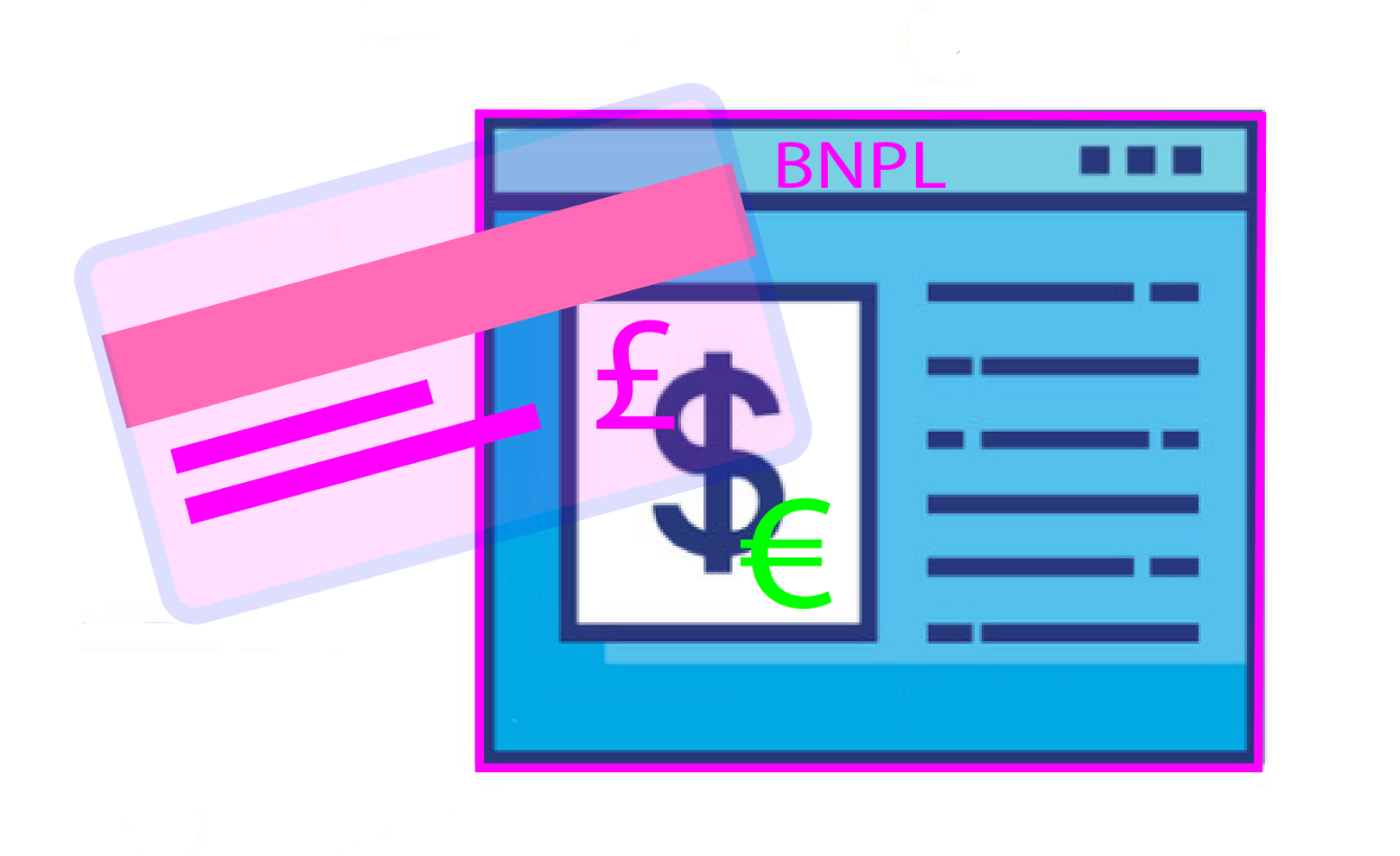Consumers have always wanted to buy now and pay on their own terms. Often that meant ‘pay later.’ The credit card companies ushered in a revolution when they began offering revolving credit and now a new breed of lenders is cashing in on a way for consumers to shop now and pay later. This business model is being referred to with the acronym, BNPL (Buy Now Pay Later).
BNPL does undoubtedly bring consumers benefits and allows flexible payment options that were previously unavailable, however, there is still a lot to be done to improve consumer rights and protection.
BNPL allows shoppers to purchase products and split payments over a period of installments that are generally interest-free, which is a huge part of BNPL’s appeal. When shopping online, or at a physical store, consumers are given the option to buy a product instantaneously and pay the full price at a later date, when at the checkout point. This method of payment has taken off rapidly over the last few years, as it gives consumers the option to decide how they want to pay for a product, with the ability to avoid paying the total cost upfront. Giants like Paypal have been quick to capitalise on the opportunity, but the 800 pound Gorilla in the room is actually a startup. Well, perhaps more of a giant scaleup that has skyrocketed in valuation and market share. Enter Klarna. The Swedish group was founded in Stockholm in 2014. Another player ClearPay, which came out of Australia in 2019, is also a popular example of businesses that offer BNPL options to merchants. It is not entirely obvious to the consumer how BNPL works, given that the marketing has such strong appeal in being able to pay for something at such favourable terms with ‘Equal Monthly Installments” spread out over a defined period of time. At first glance, it seems like the lenders must be losing money on the purchase, but that is far from the case.
There are several ways in which BNPL companies are able to make money.
- They can profit from sellers, by charging a percentage of the purchase price of a product, usually between 2-8% or a flat fee on a transaction.
- Some providers also position their service as part of marketing or promotion, as a seller is able to increase web traffic through BNPL services.
- Providers such as Afterpay make money off customers by charging late fees.
Affirm, which is a popular fintech in the US founded by the Paypal Cofounder Max Levichen, has been another giant player that has used BNPL success to charge its way to an IPO. The company boasts a long list of retailers, automotive, fitness, apparel, and furniture merchants as customers. Affirm charges an interest rate or APR, based on creditworthiness and conducts eligibility checks on users, but does not charge any fees. Although charging interest may seem counterintuitive to the BNPL model, this alerts providers to how much a customer is able to take on financially and the likelihood of them being able to fulfill payments.
In the UK, the use of such platforms has quadrupled over the last year, with 5m people availing their services. BNPL options are being offered by popular retailers such as Marks and Spencer, ASOS, H&M and JD Sports. This means that a lot of the users of BNPL are young shoppers, for whom it is easier to afford clothing and other items on a budget that allows them to spread the cost of their purchases. Making use of flexible payment methods also allow consumers to try products before they decide whether they want to keep them, without paying the entire purchase price upfront.
The BNPL craze has spread to Asia too. One of the market leaders, ZestMoney was founded by Lizze Chapman, Priya Sharma, and Ashish Anantharaman in 2015, and is amongst the fastest-growing consumer fintech companies in the country. It aims to provide financing options to households who do not have access to credit cards or other means of finance, due to their lack of strong credit history. The BNPL model, therefore, works to make purchases more affordable in countries like India. ZestMoney is available on many platforms including Amazon and Flipkart. In a country like India, where a large segment of the population does not use credit cards, companies such as ZestMoney encourage consumer spending, by allowing customers to purchase goods and make payments through the company’s merchant partners.
Although most of these services focus on ecommerce and retailers offering goods, Wisetack, founded in 2018 by Bobby Tzekin and Liz O’ Donnell, have expanded BNPL to in person shopping for services such as home improvement or car repair. Speaking on the Grey Matters podcast, Fintech for the Real World, Tzekin says that these are services where alternative and consumer friendly financing options are lacking. In most cases, it costs several hundred dollars to replace or fix services, such as plumbing systems at home, which most consumers cannot afford to pay upfront. WIth Wisetack, the service provider can offer a range of financing options for customers who are able to invest in products that last longer and are cheaper in the long run. Wisetack lets consumers pay over time for large purchases when shopping for such services. The API is integrated with platforms that businesses offering in person services use and make it easy for these service providers to offer BNPL options and for consumers to benefit from this model. Tzekin and O’Donnell have both been in fintech, before this now widely used term was coined and the two met at PayPal, where they previously worked. Together with co-founder Kolya Klymenko, the trio have a strong background in payments and technology. When the founders came up with the idea for Wisetack, they felt it would be a winning one and were keen to raise seed funding and build the company. It seems that this bet has paid off, as Wisetack has now raised $19m in funding rounds led by Greylock Partners.
BNPL companies are required to run credit checks against potential customers. These can be soft credit checks, where your credit history is looked into as part of a background check and maybe at times carried out without permission. Hard credit checks on the other hand are conducted when institutions are making a lending decision and can adversely impact credit score. This is not highlighted when customers opt in to these payment schemes and has attracted great scrutiny from consumer watchdogs, as many customers face problems repaying instalments and fall into debt. BNPL providers have also not historically been held responsible for the lack of clarity provided to customers beforehand and many regulators have failed to keep pace with the innovation happening in the fintech space.
Therefore, it comes as no surprise that in the United Kingdom, the Financial Conduct Authority (FCA) has now announced plans to introduce stricter regulations around BNPL deals later this year, in order to protect consumers. The Woolard Review, published in February 2021 by the interim chief executive of the FCA, Christopher Woolard, stated that billions of pounds were being lent by these companies in unregulated transactions, which would risk putting consumers at greater harm. This is particularly damaging as a large number of those who take advantage of BNPL schemes are young people, with little experience of financial management and credit. The review also details how regulation is beneficial for the lending industry and will help consumers who have fallen into debt due to the lack of protection that has previously been made available when using BNPL. The FCA added that consumers using these services did not realise that they could be charged fees for late-payments and end up falling into arrears, as opposed to following a plan to keep up with payments and purchase products in a manner that they can afford, which is the intended purpose of BNPL. Until now, BNPL companies have escaped regulatory scrutiny, as they have been classed as payment providers as opposed to credit firms, which require FCA approval and must carry out checks and balances on customers’ financial history. Woolard explains that “Changes are urgently needed: to bring BNPL into regulation to protect consumers; to ensure that there is secure provision of debt advice to help all those who may need it; and to maintain a sustained regulatory response to the pandemic.” Regulation around BNPL has been anticipated for a while now and Woolard’s recommendations have been welcomed by the FCA and others such as governmental bodies, with plans to introduce greater controls on the lending market. Currently, those adversely affected by BNPL have little protection and are even unable to seek help from the Financial Ombudsman, which serves to resolve disputes between consumers and businesses.
Klarna, a major BNPL player has responded positively to these developments and announced that they ‘welcome the outcome of the Woolard Review into change and innovation in the unsecured credit market.’ Greater regulation will mean a better outcome for consumers, but as always will result in pressure on operating margins, and compliance costs are bound to increase.
BNPL does undoubtedly bring consumers benefits and allows flexible payment options that were previously unavailable, however, there is still a lot to be done to improve consumer rights and protection. The FCA’s announcement to regulate the space is a step in the right direction, as BNPL appears to be here to stay and is fast becoming a ubiquitous checkout option. Even the e-commerce juggernaut Amazon now offers Equal Payments spread out over time now (BNPL). Early-stage startups are also springing up around the world to offer BNPL in what looks like a specialisation of industries and verticals. From the BNPL for travel, providing BNPL as an employee benefit, and others, the model itself is now being disrupted by the variants. Customers should be able to gain as much benefit as they can out of this model but with clear signposting and better education around terms and outcomes.



